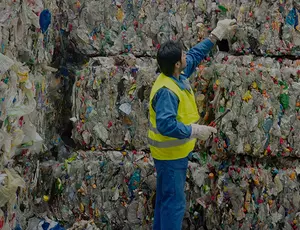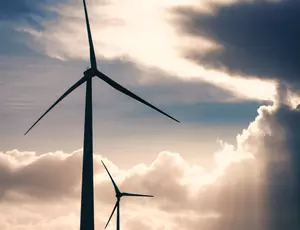Veolia Voice
Introducing Scope 4, the carbon we save when businesses do good things.
The Federal government proposal to enact a law for climate-related financial disclosure is a good first step for climate reporting for Australia and adds another layer to the raft of positive climate actions it has brought in.
However, despite its good intentions, the way emissions are measured as part of this proposed law could delay investment in significant emissions reduction opportunities and even slow our overall downward greenhouse gas emissions trajectory.
Where the proposed law comes undone is through limiting how we measure greenhouse gas emissions to Scope 1 (those your business directly emits), Scope 2 (those emitted by the power sources you use), and Scope 3 (your supply chain’s emissions).
That focus leaves a gaping hole in reporting that could see those industries best placed to reduce Australia’s greenhouse gas emissions unable to report or benefit from the emissions savings they bring. It may even see some industry sectors face penalties that lead to a slowdown in investment and our progress towards a circular economy.
The poster child of this paradox is Australia’s waste and resource recovery sector, a key pillar needed to reduce emissions and achieve State and Federal circular economy targets.
There is no doubt the Federal government has been actively and positively working with the waste and resource recovery sector to make it a foundational pillar of a circular economy with policy at every level aiming for more waste to be recycled and more resources to be recovered. To meet this policy-driven demand the waste and resource recovery sector must build new facilities, and use energy and water ― which cost ‘carbon’ ― to recycle those materials. This expansion will be rapid, requiring billions of dollars of investment and is expected to employ another 25,000 people over the next decade.
While more carbon will be saved in the wider economy as the sector grows ― because the recycling of materials creates massive efficiencies avoiding new raw material extraction and refining ― that benefit is not measured in Scope 1, 2 or 3 activities.
This absence from the record occurs at the same time as legislation logically aims to penalise businesses that increase their emissions.
So, those business sectors that increase their production capacity to meet the rising demand for raw materials recovered from batteries, plastic, paper, or glass, will not receive any benefit even as they reduce emissions across the wider economy. They are more likely to be penalised while manufacturers using the raw materials they produce are rewarded.
This is true even if the emissions intensity of the new and upgraded resource recovery facilities are lower, because the enormous overall increase in waste to be recycled and resources to be recovered will undoubtedly see a rise in the sector’s Scope 1 emissions.
To penalise a sector that has the potential to produce significant emissions reductions across the entire economy is nonsensical. So, what is the solution?
Enter Scope 4 or “avoided emissions”, which were first proposed in 2013 by the World Resources Institute to tackle the very problem described here. These are the emissions savings that a business makes for others that are not currently accounted for in the proposed climate-related financial disclosures.
Importantly, Scope 4 is not just about better accounting for business, it is also a vital tool for policymakers. It enables them to measure the influence of a business or industry sector on the overall trajectory of emissions, not simply where they originate. With that information policymakers can identify where to allocate financial resources to most quickly accelerate the decline in emissions and remove perverse outcomes that could slow that downward trajectory. Including these emissions will help the government achieve its ambitious goals.
If we fail to record Scope 4 emissions the resource recovery sector will not be recognised for its efforts, it will likely be penalised, and investment will drop away just as we see a massive increase in demand for recovered raw materials driven by circular economy policy settings, carbon targets and best environmental practice.
Waste won’t be the only sector affected by this. Low emissions transport, like rail networks, are also likely to see an increase in overall emissions as they become the go-to option for businesses aiming to reduce Scope 3 emissions. More trains will carry more cargo. This means more emissions overall for rail, while every business it serves gets emissions reductions and Australia’s national greenhouse gas inventory benefits.
As any business leader knows, companies react to what is measured. What isn’t measured, doesn’t get acted on. So we need to find a way to measure these savings and Scope 4, avoided emissions, offers a useful approach.
When we record avoided emissions we identify those businesses doing the heavy lifting, remove obstacles that stand in their way, and make sure we get the best bang for our investment buck. It’s the fastest way to achieve a net zero future.





